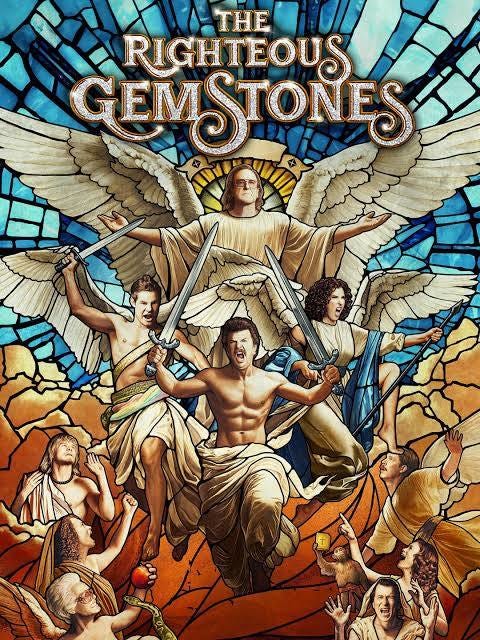View

Now in this island of Atlantis there existed a confederation of kings, of great and marvelous power, which held sway over all the island, and over many other islands also and parts of the continent.
Plato “Timaeus” ~ 360 BC
The island of Atlantis was an invention of Plato that he used in his description of an ideal society - but also in his description of the hubris of the nations in their pursuit of such an ideal. This ideal dies hard.
In Plato’s telling, Poseidon, the Olympian god of the sea, gifted the island to his son, Atlas, along with the Atlantic Ocean (named, in this telling, after Poseidon’s son). It was an ideal land conquered by it’s own hubris after an ill-fated attempt to conquer Athens. Having fallen out of favor with the Greek deities, the island nation sinks into the sea. It wasn’t long after Plato’s death that many ancient writers, the Jewish historian Philo and the early Christian theologian Tertullian among them, believed that Atlantis had been a real place. The allure of this ideal state, emblematic of wisdom and strength, is real. Atlantis was a minor part of Plato’s writings, whose importance has been magnified in many works of literature since - including Thomas More’s (of Henry VIII fame) Utopia - depicting a perfect, fictional state. The word “utopia”, in fact, literally means “no place” - a place that doesn’t exist. But that doesn’t stop conspiracy theorists over the years from looking for it. We want it to exist, we want to create it if we can.
We know (or most of us do) that Atlantis was fictional and that Utopia doesn’t exist. But it has been one of the characteristics of modernism that we can keep improving (and the assumption is we will keep improving, that only forward movement is possible or even thinkable). Eventually, we will create our own Utopian world. As we advance in scientific discovery - as we progress in medical treatments - as we gain educational proficiency - as we grow in knowledge - as our economic prowess increases … we will move away from war, from disease, from poverty, and live in a Utopian harmony.
The Bible speaks of a vision of the future in which all of these evils have been eradicated and where the lion lies down with the lamb.
Many people will come and say, “Come, let us go up to the mountain of the LORD, to the temple of the God of Jacob. He will teach us his ways, so that we may walk in his paths.” The law will go out from Zion, the world of the LORD from Jerusalem. He will judge between the nations and will settle disputes for many peoples. They will beat their swords into plowshares and their spears into pruning hooks. Nation will not take up sword against nation, nor will they train for war anymore.
Isaiah 2:3-5
This is one glimpse of the biblical picture of the redemption and restoration of all things. However, the verse prior to this passage begins, “In the last days …”. This is a picture of the next age, not this one. But the idea that we can bring it to pass dies hard, even in Christian circles.
It was Dr. Martin Luther King Jr. who said that the arc of history is long, but it bends toward justice. He was of the once influential post-millennial theological school which believed that we would create a world that steadily improved until this improvement ushered in the time when God would come to earth to reign. Slow but steady improvement until the arc of history and justice meet. I don’t believe that is what we see in the Bible, and most Christian theologians agree. But the homegrown Christian Utopian beliefs we often encounter don’t find their home in Plato’s writings or in any school of Christian theology. It is just what we prefer to believe.
I could be referring to the hubris-filled, triumphal, over-the-top but uncomfortably not that far over-the-top mega-church depiction we see in The Righteous Gemstones. But that is too easy. We don’t see ourselves in this parody, we are laughing at others - some of whom we know, or think we do. I could be referring to the manifesting, name it and claim it, God has only (material) blessing for you world of the prosperity gospel, but that is only a small corner of this phenomenon. A corner most of us don’t live on. I am thinking of something a little closer to our corner of faith. We don’t believe, really, in a Utopia that can be achieved on earth. We know, mostly, that the promises of the eschaton must wait for the eschaton. We just often have a mini-utopian view of our own lives.
In this world you will have trouble.
Jesus
John 16:33a
This surprises us. Despite the unrelenting depiction of the difficulties of everybody in scripture, including Jesus, who did not have a place to lay his head, this surprises us. I think this is more true of American Christians than in other parts of the world, but it exists in every part of the church - this surprise when things in our lives break down or fall apart. In this world we will, and do, have trouble. This is the world where trouble is, this world we are in.
But take heart! I have overcome the world.
Jesus
John 16:33b
Here is what is so easy to forget. Our life of faith is meant to be a life of dependence, trust, faith, and hope. All of which we learn in times of trouble and tend to forget in times of prosperity. We are to find peace in Him, purpose in the mission He gives - a mission of love for the world we actually live in, connection in the community of faith, and blessing in all that we have from Him in the midst of a broken world. A peace and prosperity that draws us inward, away from others, away from dependence on God and the people of God, away from the world we are called to love is not the peace and prosperity we are made for. We are made for another kind, a kind we may only get glimpses of now.
No, our messy selves and our messy little redemptive arcs are called to this messy world. Where we will have trouble. It is the only way we learn and experience and share that He has overcome the world.
Take
This will be published on Easter Sunday, the celebration of the resurrection of Jesus. Which follows the arrest, beating, unjust trial, humiliation, and crucifixion of Jesus. He knew about trouble. A trouble He always knew was coming - a trouble that formed the background for his teaching and healing and leading and loving - for His ministry of showing us the Father in a hot and dusty and hungry place. He also knew about the trouble of the people He invited (and invites) to the life of redemption and hope. It is a trouble we bring upon ourselves, collectively and individually - we can’t blame Him for it. And yet, from here, this place of trouble, in this part of the story, it is where we can see Him most clearly. But take heart! I have overcome the world.
Happy Easter.




